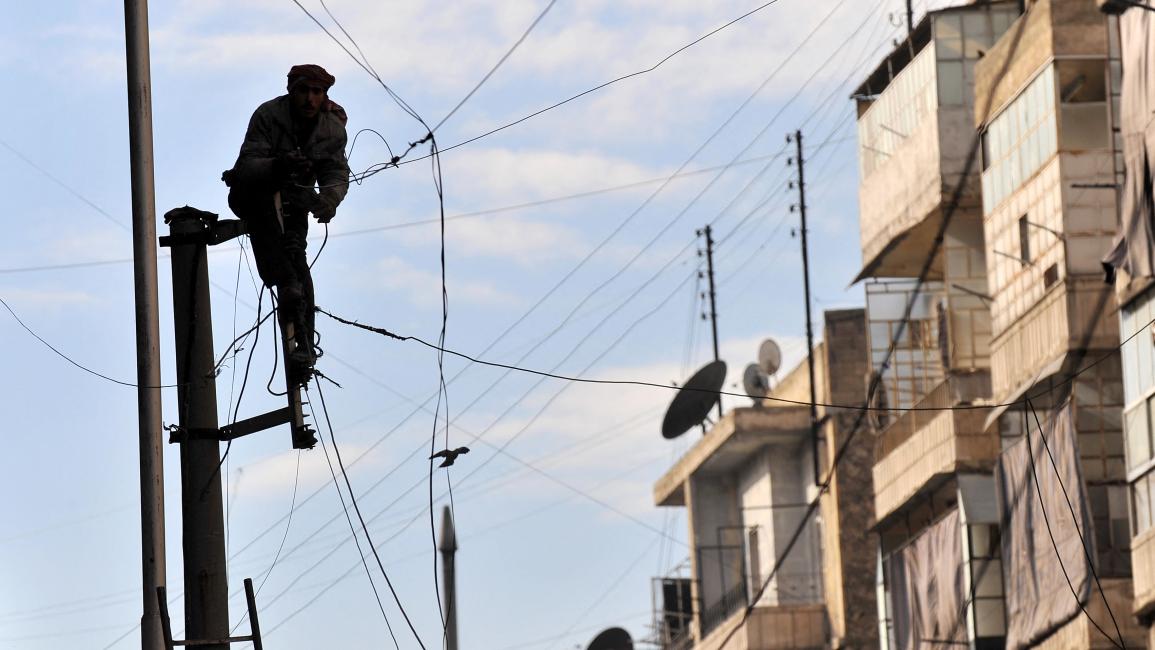Syria is witnessing a marked increase in thefts and attacks on both public and private property, driven by economic deterioration and a weakened security apparatus following the collapse of the previous regime on 8 December 2024. Residents in various governorates—including Latakia, Damascus, Hama, and Aleppo—have reported widespread thefts affecting vehicles, shops, utilities, and personal belongings. This report examines the extent of the problem, its impact on local communities, and the underlying factors contributing to this surge in crime, as described by citizens and officials alike.
Widespread Thefts Across Syria
The rise in thefts has affected urban and rural areas alike. Frequently targeted items include vehicles, shop inventories, industrial warehouse equipment, water pumps, motorcycles, mobile phones, public garden infrastructure, and electrical and telephone cables.
In Damascus, Ridwan Khadra, a mobile phone shop owner in the Al-Midan neighbourhood, told Al-Araby Al-Jadeed that his store was looted overnight, with thieves breaking the locks. He noted that several neighbouring shops had suffered similar fates. Khadra cited a lack of policing, the widespread availability of weapons, and the emergence of organised theft gangs as key contributors to the growing fear among residents.
In Latakia’s Al-Saliba neighbourhood, local resident Majd Ghawi reported two separate incidents targeting his car in a single month—once for a stolen tyre, and later for stolen windows and an audio system. Ghawi noted four other similar thefts in his area within a week, suspecting a gang using a ceramic-like powder to silently break windows. He urged authorities to improve street lighting and increase patrols to deter criminals.
In Hama, Syrian expatriate Ziad Abdullah, visiting from Germany, was robbed of a bag containing identification documents, a passport, and cash. He expressed frustration at the lack of security and the bureaucratic difficulty of replacing his documents. Meanwhile, in Aleppo, municipal authorities recorded over 200 incidents of electrical cable theft over two months, leaving many neighbourhoods without power. In Daraa, the head of the local electricity company, Hani Masalma, estimated losses of 3 billion Syrian pounds (approximately $293,000) due to cable thefts between January and May 2025.
Impact on Public Infrastructure
The theft of essential public infrastructure, particularly telephone and electrical cables, has severely disrupted basic services. Abdel Qader Youssef, a telecommunications supervisor in the coastal region, reported 80 instances of telephone cable theft in 2025 alone. These incidents, costing billions of Syrian pounds, have significantly degraded service quality for subscribers already struggling under fragile infrastructure.
Underlying Causes
Retired police officer Ayman Ghaniri cited several key factors behind the spike in thefts. The mass release of prisoners during the regime’s collapse has created a pool of seasoned criminals. Economic hardship, mass unemployment, and insufficient oversight have fostered an environment ripe for crime, particularly in informal and underserved communities. Ghaniri also pointed to the inexperience of newly appointed officers, many of whom are inadequately trained to handle the growing crime wave.
Syria’s economic crisis—intensified by years of conflict, sanctions, and infrastructure collapse—has left many citizens impoverished, with some turning to theft out of desperation. The Syrian Observatory for Human Rights (SOHR) had already identified low wages and poor living conditions as primary drivers of theft back in 2022, a trend that continues into 2025. According to the World Food Programme, minimum wages in Syria now cover just 11% of basic household needs.
Weak Security Apparatus
The fall of the previous regime has significantly undermined Syria’s policing capacity. Many police stations are understaffed or manned by inexperienced personnel. Citizens like Khadra and Ghawi described minimal police response, often limited to merely logging complaints without taking action. The lack of visible deterrents, such as night patrols or surveillance systems, has allowed criminals to operate openly—even during daylight hours.
Recent security campaigns in Latakia, Homs, and Rif Dimashq have been launched by general security forces. However, these efforts have encountered resistance from armed factions and have been accompanied by reports of abuses, particularly targeting Alawite civilians, further eroding public trust. The transitional government’s limited control over radical elements and foreign fighters within its ranks has exacerbated fears about its ability to ensure stability.
Community Demands and Proposed Solutions
Local activists and residents have urged the Syrian Ministry of Interior to take immediate steps to address the deteriorating security situation. Recommendations include reinstating night patrols, installing surveillance cameras in vulnerable areas, activating emergency hotlines, and enforcing harsher penalties for theft and vandalism.
In Latakia, community protests over rising crime levels prompted security forces to launch campaigns targeting former regime affiliates. These operations followed attacks on civilians and the Military Operations Administration. Despite this response, residents report little change, with frustration continuing to mount—especially on social media, where users lament the decline of security and basic services.
Broader Context
The rise in thefts reflects a wider humanitarian and security crisis in Syria. Since assuming office on 29 January 2025, transitional government leader Ahmed al-Sharaa has faced immense challenges in reconstructing the economy and addressing a history of human rights abuses. Sectarian violence—such as recent unrest in the coastal regions and Suwayda—has further drained security resources, with more than 1,700 deaths reported in coastal clashes alone.
The return of over 719,000 refugees since December 2024 has increased pressure on public infrastructure and services, intensifying both economic and security challenges.
The sharp increase in thefts across Syria—set against a backdrop of economic desperation and fragile policing—has left citizens feeling increasingly unsafe and neglected. The combination of poverty, impunity, and inadequate law enforcement has emboldened criminal networks and eroded public confidence. Urgent action, including bolstering security, protecting critical infrastructure, and supporting economic recovery, is essential. For the transitional government, prioritising these issues will be crucial in fostering national stability and rebuilding trust—particularly among returnees and displaced communities.
This article was translated and edited by The Syrian Observer. The Syrian Observer has not verified the content of this story. Responsibility for the information and views set out in this article lies entirely with the author.


